There’s been a lot of talk of cancelling childhood at the moment
With the conversation about Enid Blyton and even Dr Seuss’ forays into racism, sexism and other problematic isms, there has been some anger from people who feel their childhood enjoyment of something is being threatened by an honest appraisal of these works with a modern lens.
I’m not going to go down the rabbit hole of talking about why Cancel Culture doesn’t exist and how being honest about a text changes nothing about your childhood. But it does make you wonder how you’d respond to watching a beloved childhood TV series as an adult.
These musings inspired me to go and check out a much-loved show from my youth. A show about young cops who go undercover in highschools to solve youth crime. Yes, it’s the original 21 Jump Street.
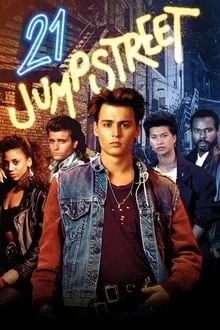
Starring a baby Johnny Depp – presumably, at this point, sane – and an equally-young Peter DeLuise, as well as Richard Grieco and Holly Robinson, the show ran for five seasons and was definitely one for which I have some youthful nostalgia. It spawned in 2012 a ghastly film version and an even more ghastly film sequel – 21 and 22 Jump Street respectively.
At the time they aired, I did not feel the films captured what I remembered most loving about the show (and no I don’t mean Dustin Nguyen on whom I had a huge crush – as much as or even more than my crush on Ben the Vet who was in Australia’s long-running soap opera, A Country Practice around the same time).
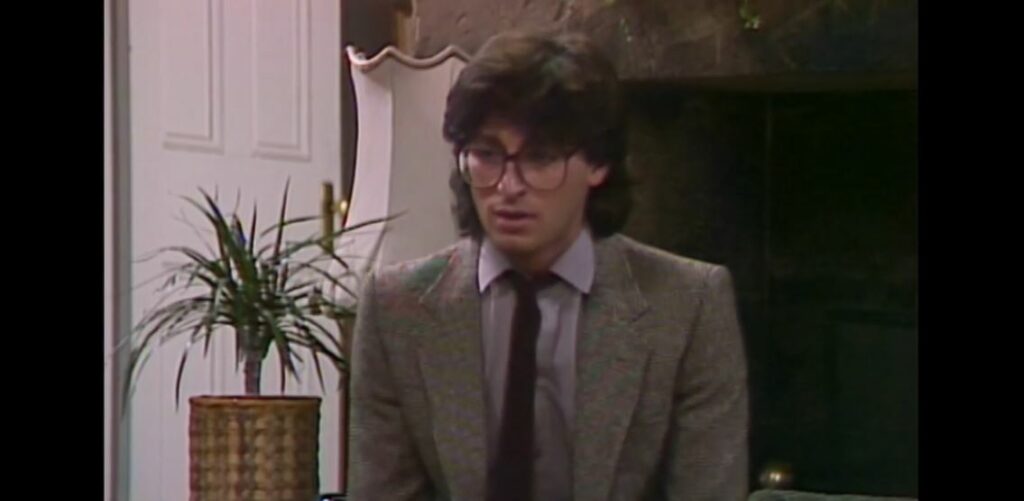
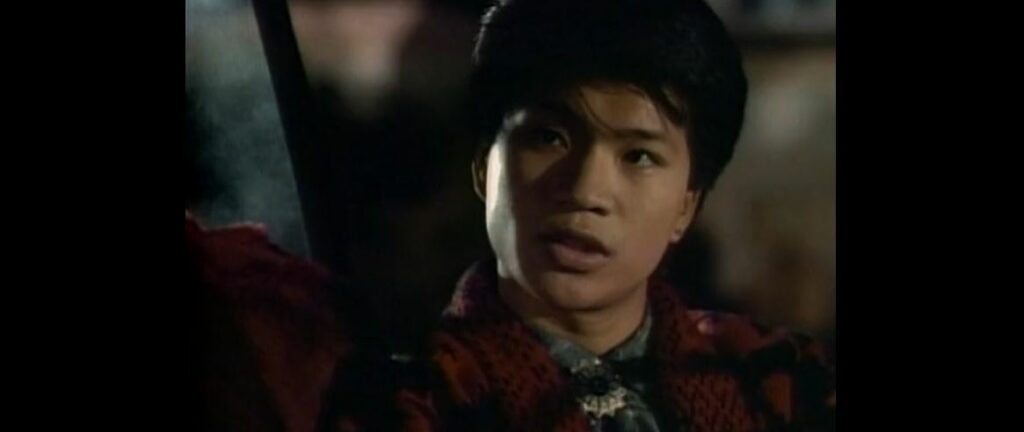
Be still my pre-teen heart.
No, what I remember about 21 Jump Street was in fact its earnestness and its progressiveness. I do remember it having a slightly after-school special vibe but also being an action-packed ensemble drama with black and Asian leads, a strong female character and an emphasis on current social issues. It’s in the latter that I expected the show may fall down but I was nonetheless looking forward to diving back in.
Well, the two-part pilot of 21 Jump Street starts with a cold open so problematic that watching it from 2021 is almost shocking. Produced in the same year as the police murder of the unarmed black man, Anthony Griffin, this episode starts with heavily-armed black men terrorising a white suburban family gathered around the breakfast table.
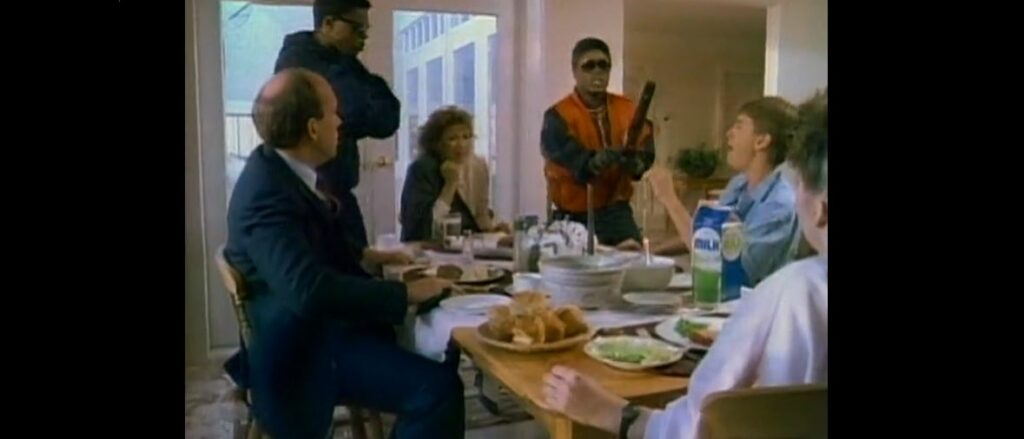
The acting is almost as bad as every part of this coding: the cliche of black urban violence reaching into the white suburbs due to inadequate policing – a narrative that very much underpins the white middle class support for aggressive racialised policing.
From the beginning of its very first scene, 21 Jump Street – despite its representative cast – is busy selling well-worn racist narratives. These continue into the next scene where we meet young rookie cop Officer Tom Hanson (Johnny Depp). Officer Hanson wants to do ‘proper’ hands-on policing. He wants to dive into the fray and protect innocent women from armed thugs. While he doesn’t spell it out, the dialogue in this scene links us mentally to the one before this: in our head the armed thugs are already black and the innocent woman begging for help is a white suburban housewife.
We don’t police like this anymore, explains his world-weary partner – only a few months from retirement and therefore definitely about to be murdered. Policing is ‘scientific’ now and, faced with the kind of violence Hanson just described, the cops will and should simply run away. It’s not like the good old days of policing when they were allowed to go to town on suspects, now they might be up for an assault charge.

As well as establishing that Hanson is a rebel and a maverick, we also establish that his father was killed on the job.
We’re only five minutes into my nostalgic childhood and already 21 Jump Street has positioned itself for its white middle class audience. The thugs are black, they’re armed, and they’re ready to burst into your suburban mansion at any time. The cops are too scared or too hamstrung to do anything about it. And those that try are killed on the job.
Hanson and his partner are called to the palatial home to interview the family who were robbed. The highschool-aged son seems to owe these men money, which is why they came collecting. Whatever caused the incident, he’s definitely involved. And yet the petulant teen is treated with kid gloves until he storms into this bedroom out of anger.
One can only imagine the kind of treatment that would been meted out to a black teen in a similar situation. But in this case:
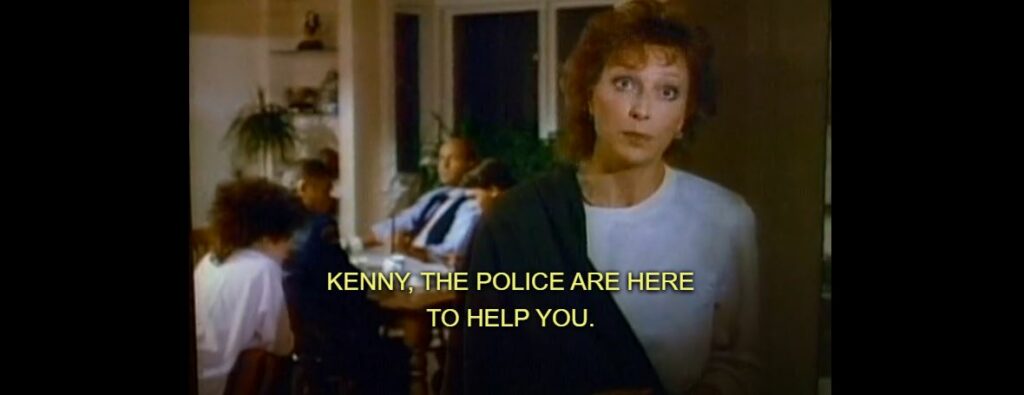
The worst thing is – they really are.
We’re now only 10 minutes in and we get treated to our second crime for the night. And, you guessed it, it’s another black guy with a shotgun. This time he’s robbing a convenience store manned by a white clerk.
Now, this guy has three (unarmed) white accomplices. Nonetheless, for those keeping count, our proportion of black men who are heavily armed criminals is 100%. Our count for cop heroes is two white guys. And our count for female characters is two white victims. And somehow we’re only just beginning.
Hanson and his partner’s attempt to arrest these convenience store robbers ends in tears and bloodied noses. It does not, to my surprise, end in his jovial six-months-from-retirement partner’s death. However, it’s enough to get Hanson pulled from patrol. He’s too hot headed, too green, too good looking and, more pertinently to the plot, too young.
The Captain pulls him in for a straight talking conversation about this future. But first he lights him a cigarette so they can have a smoke. You know – man to man.
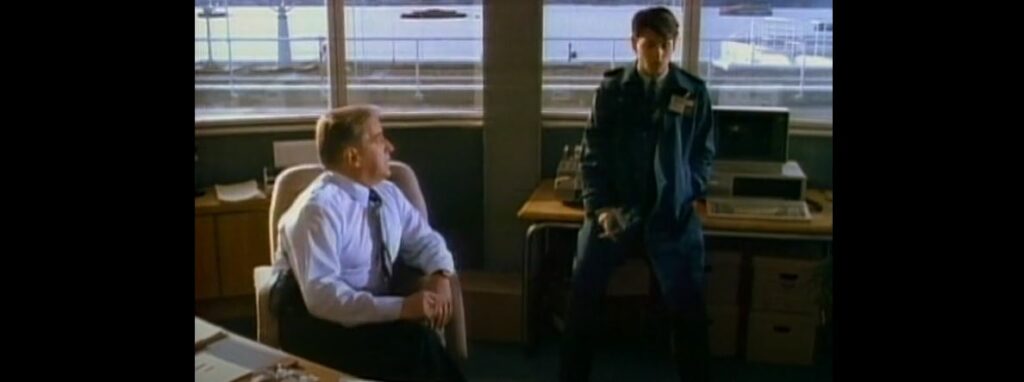
Yikes.
After laying down some homespun truths, he packs Hanson off to a new assignment – a specialist team that goes undercover in highschools. It’s at the Jump Street Chapel. And after some pensive bare-chested flashbacks to his dead father, Hanson decides to take the offer and shows up to the church the next day.
There he meets his new teammates in all their United Colours of Benetton glory.
Penhall (an exuberant Peter Deluise) lets us know straight up that he’s Jewish. We meet the (still so hot) Dustin Nguyen and OMG his character’s name is H.T (Harry Truman) Ioki and I don’t even know where to start with that. Maybe with his character apparently being Japanese despite the actor being Vietnamese. I have no memory of this.
We then meet Captain Jenks and for some inexplicable reason he’s played like a 70s stoner with a boner for Hendrix and an emotional attachment to Woodstock. I have no idea why except that somebody thought a character like this would be hip to the kids these days and who knows, in 1987 maybe he would have been. I was about 10.
Finally, we meet Sergeant Judith “Judy” Hoffs ( Holly Robinson) and hallelujah, it’s a black character who’s not a criminal. But judging from the way that Hanson’s sizing her up, she’s destined for will-they-won’t-they Love Interest and she spends the first segment of her appearance giving him a makeover. I could complain about the show having a grand total of one female character but I won’t be so uncharitable. Black female leads are still hard to come by in TV land and so far Hoffs is a stereotype-busting competent cop so we’ll just choose to be happy.
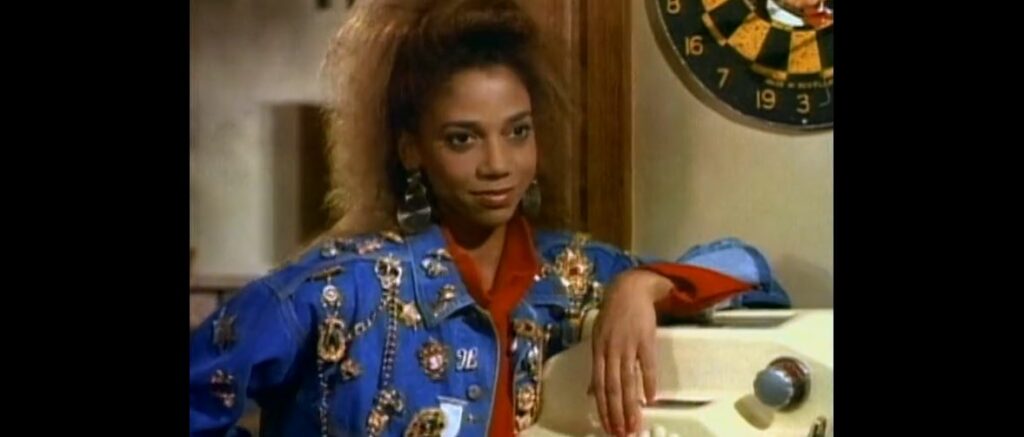
Hanson gets drafted into his first case and of course loses his temper and blows both it and Penhall’s cover. His trigger is any reference to his baby face and his desire to prove himself a ‘real cop’ like the patrolmen he wanted to be. Considering going from patrol officer to undercover detective is actually a massive promotion, this is a somewhat bizarre philosophy but we’ll just roll with it. It makes no sense but it’s the show’s premise and that’s the world we’re working in.
But before Hanson can be busted back to… whatever is below a beat cop (nothing is below a beat cop)… the friendly neighbourhood suburban white kid criminal we’re supposed to emphathise with pulls a snatch and grab on a jewellery store. Coincidentally his thugs go to the same school that Hanson’s been sent to. No, really, those Jag-stealing, shotgun-wielding guys from the first scene are apparently highschool kids and they show up to school with a stolen Ferrari but nobody bats an eyelid.
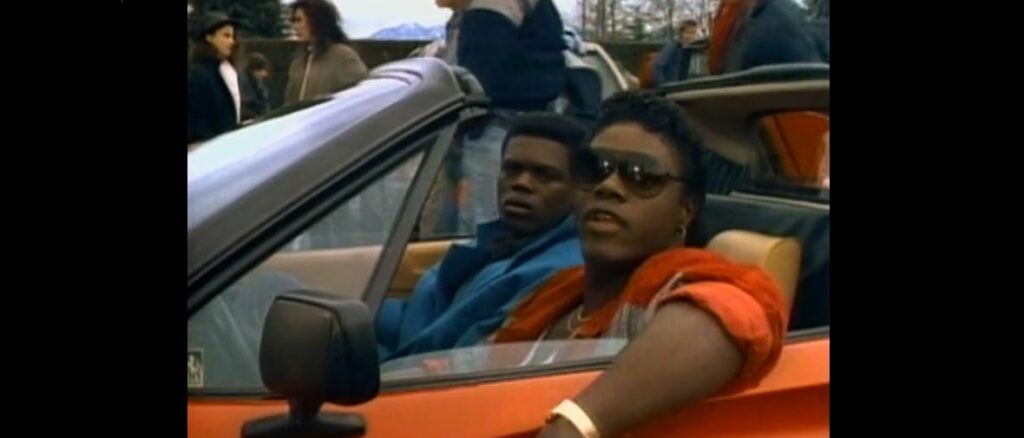
As the second hour unfolds, we’re treated to more of the same underpinning philosophy that started this episode. Hanson’s job isn’t just to police the school. It’s to ‘save’ the poor white kid from being taken off the path by these bad influences.
Kenny Weckerle, son of the clarinet-playing insurance salesman, is portrayed with increasing sympathy while the black students remain one-dimensional and utterly without context. They’re wannabe gangsters eventually apprehended in a violent shootout while Kenny is packed off to rehab with a heartfelt thank you to the cops that rescued him.
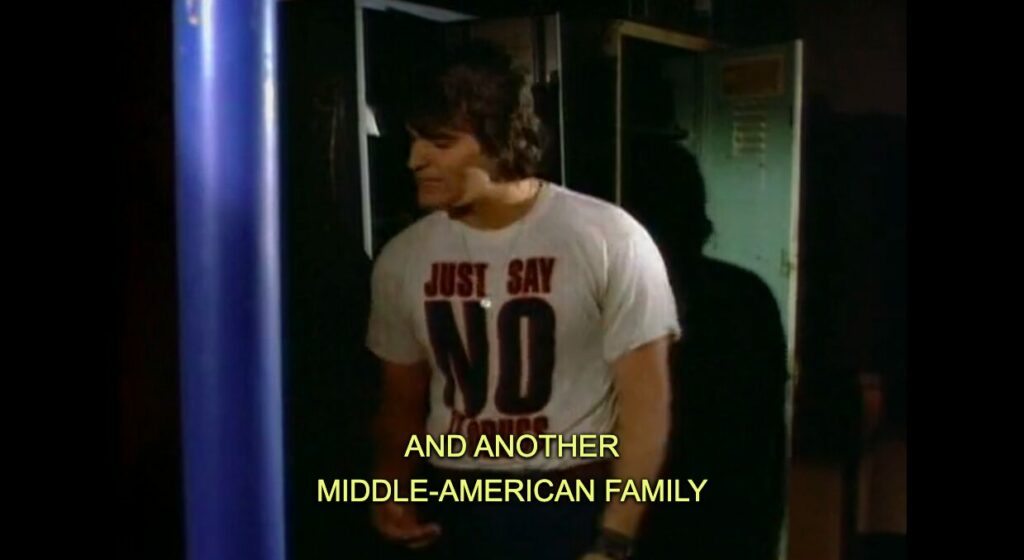

The show’s violence is what I have most forgotten about 21 Jump Street. The show and the policing it portrays is extremely violent and that violence is portrayed as necessary and proportionate. But it is almost never directed to students like Kenny, despite him being a drug user whom police witnessed committing several smash and grabs.
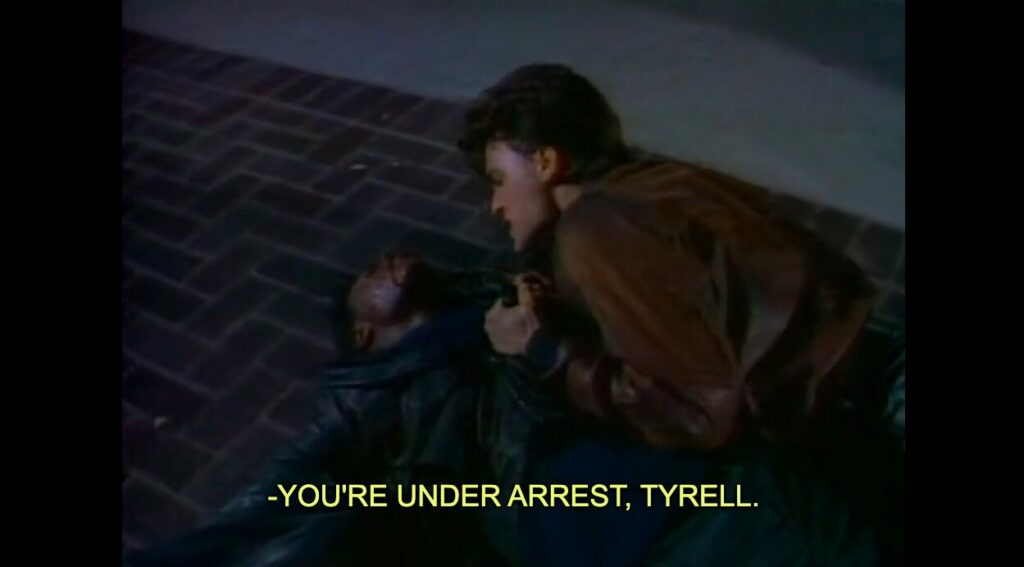
Ironically, what I remember about the show’s overarching message is still here and it’s still good. Good policing is not about arresting the first person you see committing a crime. It’s about considering the whole crime, tracking it back to its roots and most of all protecting juvenile offenders from being drawn further down the path towards a criminal life.
21 Jump Street was about looking for alternatives to incarceration for young vulnerable teens and policing in a hands-on and empathetic way. It’s what I remember loving about the show and it’s still here. What I had forgotten – or probably not even noticed with my pre-teen middle class white eyes – was how discriminatory that philosophy is. This pilot’s ‘bad guys’ were also teenagers in highschool. But no attempt was made to apply this style of policing to them.
As the first two hours end, I realise that my initial count still stands. The proportion of black men in this show portrayed as violent heavily-armed gangsters is 100%. There’s one black female character who is extremely under-utilised (Hanson is most definitely the main character) and she has been marked for Love Interest. I’d take bets on whether the show had the guts to portray a multi-racial romance but I imagine nobody would take it.
It’s a shame that what I remember about the show’s multi-racial cast and progressiveness is mere window dressing. This is a show that does nothing but pander to a white middle-class’ fears and prejudices.
Consider my childhood cancelled.
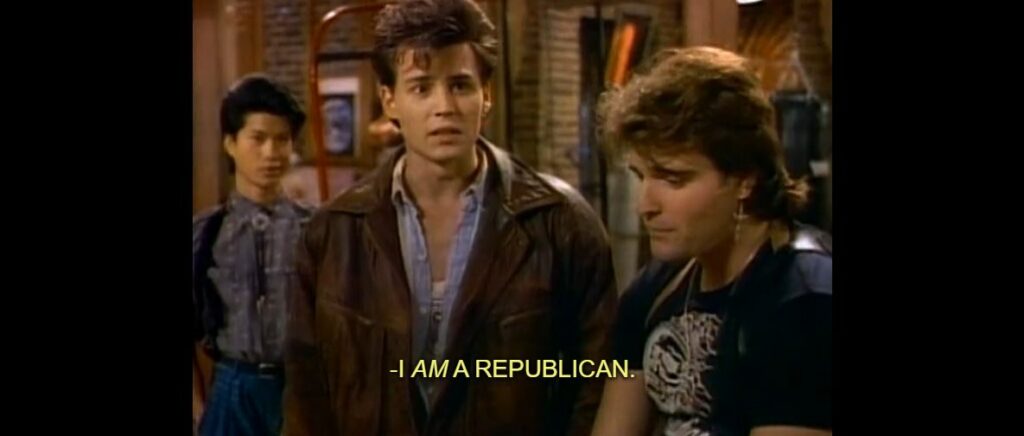
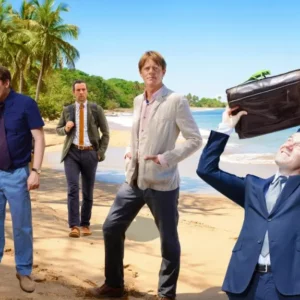
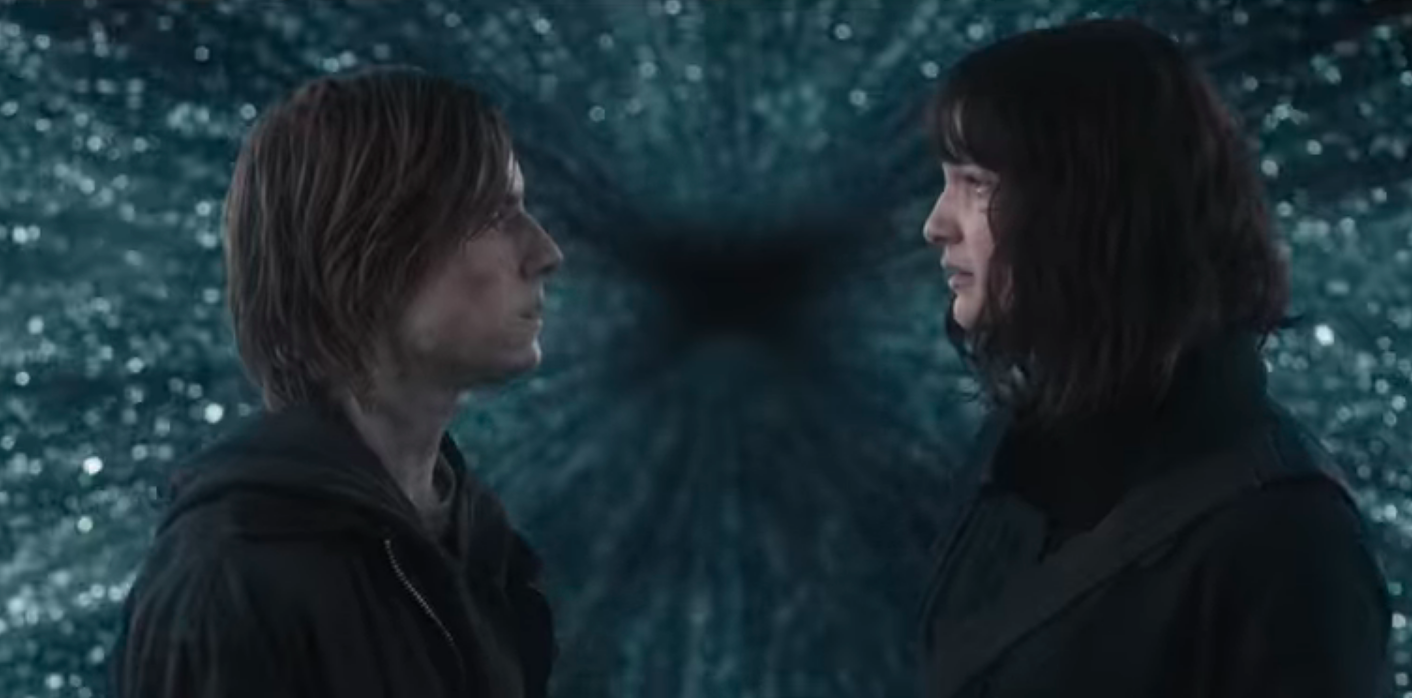
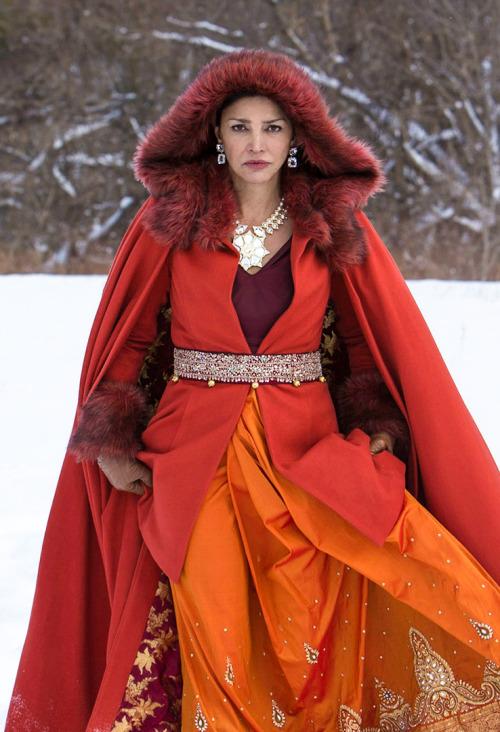
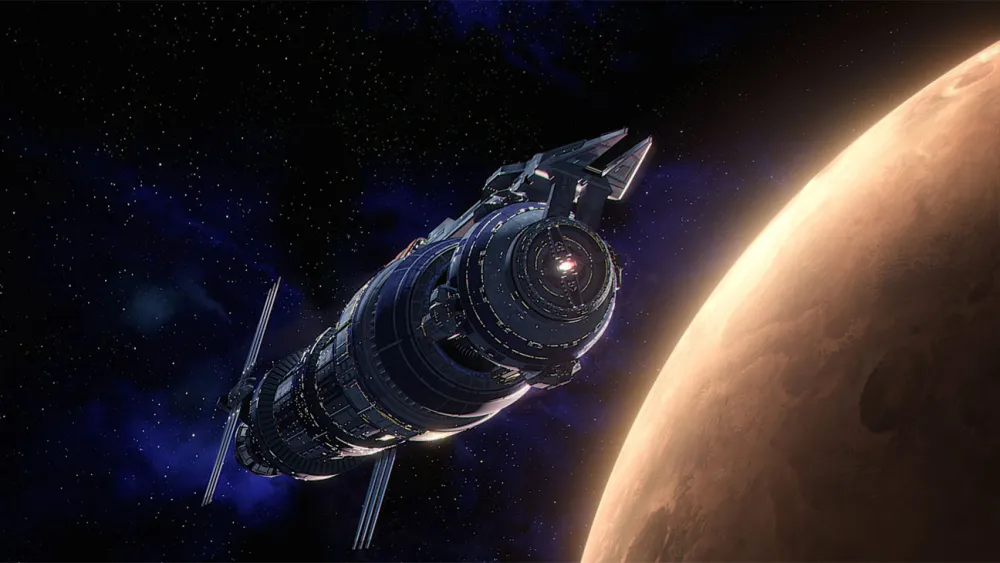
I didn’t think I’d ever think about this show except through rose tinted glasses. Now you’ve ruined everything LT. Sniff.
I’m sorry I cancelled our childhood. It’s unforgivable.
I suppose for the record, I never liked 21 Jump Street. It never grabbed me. It wasn’t a part of my childhood though. Although I do appreciate, as you point out Lee, the show’s efforts to explore alternative methods to incarceration re the generational change at that time.
Sometimes, I think, it is perhaps best to leave some shows where they are: in our Utopian memories 🤣
Shows I truly loved growing up going way way back: The Rockford Files, Starsky and Hutch (which my mum liked, but would never admit in this day and age), Gilligan’s Island, Bewitched, The Ghost and Mrs Muir, Doctor Who (which was on life support for a fair while before its hiatus), Star Trek (which still stands up, but that might be the Trekkie – with a small t, talking at this point), The Professionals, and dare I say The Dukes of Hazard. That aside, my folks encouraged me to watch whatever the latest serial was on the ABC on a Sunday night (I still miss that format).
So, on that note I am going to track down the Rockford Files as I was listening to the theme song over and over again last week. It’s something that all guitarists like to play, including frustrated ones like myself. Great post 😊
Thanks, Sean. Good luck tracking down the Rockford Files. I hope it has a happier ending than my foray into 21 Jump Street.
Thanks, Lee. I think it just might 😊
For everyone who feels that 21 Jump Street was racist and ruined your childhood memories, let me offer another perspective.
As a black male who was an adult during Jump Street’s original run, I remembered the Aids episode, the paralyzed football player episode, the Penhall bully episode and the hilarious “officer Milk Carton”!
I have been recently been watching the show again because it is available on a channel called Retro TV. I’m even more amazed by the wide range of issues that this show addressed.
Examples include raised include:
1. “Higher Education” – A charismatic teacher taking advantage of his charm to seduce female students
2. “Honor Bound” – Violent gay bashing
3. “Two for the Road” – Underage drinking and Captain Fuller’s Arrest!
4. “Brother Hanson & the Miracle of Renner’s Pond” – A biology teacher believes that he must teach creationism after his son experiences a miracle.
I was very impressed by this last episode because it contrasts the law with personal belief without making either side out to be evil caricatures.
I thought that race was explored fairly well for 1987. The episode “Don’t Stretch the Rainbow” explores a full range of feelings about discrimination and racism from the perspective of various black characters include Captain Fuller, Hoffs, the Principal, and others.
The episode “You Ought to Be in Prison” adds more depth to the character of Tyrell Thompson. He was the black drug dealer from the Pilot who was arrested by Hanson. It is revealed that he was intelligent and had potential, but chose to be a criminal. He then blames his arrest and incarceration not on his actions but on officer Hanson. I’m sorry but I know people like this can be found in all communities, black, white, etc.
Finally, Dustin Nguyen discusses how fortunate he was to be on a show that did not stereotype his character.
https://deadline.com/2020/10/dustin-nguyen-warrior-season-2-21-jump-street-asian-hollywood-diversity-inclusion-representation-1234589565/
I’m not saying that 21 Jump Street was Emmy worthy. The episodes often had to reach for simplistic or unlikely resolutions to complex issues in order to meet their hour long format. I am saying that I find myself more impressed today by this show’s willingness to address such a broad range of issues for its time.
In spite of its shortcomings, I ask that people give this show another chance.
Thanks so much for such a passionate defence of this show and for sharing your perspective. It’s true this piece was based on a rewatch of only the pilot episodes of a show I haven’t watched since I was a child.
Your description is certainly that of the show I remember and I was somewhat surprised and disappointed at just how much the first two episodes were positioned from the viewpoint of a white middle class audience.
Your comment makes me want to watch more of the show to see how these ideas are teased out more and how the show stands up as a more complete product.
Thanks again!
Came here looking to wallow in justified outrage after that atrocious first episode. You’re hitting the nail on the head.
But I didn’t stop watching and watched more episodes and I do have to say the rest is a lot better.
Holly Robinson, the black girl, has a bigger role (I guess it’s understandable they want to focus the first episode on the main character/johnny depp’s story as there is a lot of introduction and world building to do) and they even get a black captain 6 episodes in. Both are competent and bad ass and not inferior to the white characters (although Johnny is still the main).
Even the black gang members that show up occasionally later on, are less one dimensional.
And some group of entitled rich white kids that have sex with a drugged girl are treated without mercy. The one that gets away gets killed by a family member of the victim and that’s even treated as a form of justice (not that is that is good but the lesser of two evils i would say).
Would recommend people that enjoy some old school 80s action and high school comedy to give this a chance beyond the first episode.
Still there are some flaws, especially the pervasive drugs-are-bad-mkay morale. What I think is a big pro of this is series is a very sex-positive attitude 🙂 something still missing in so many of today’s shows!
Some episodes later HT Ioki is retconned (at least, i don’t think they planned it) into vietnamese by revealing he was a vietnamese refugee who escaped the fall of saigon and took the identity of a dead japanese guy in order to join the police! So I guess they realised there was something off about having a vietnamese guy play japanese 🙂 (still keeps the same name though for some inane reason)